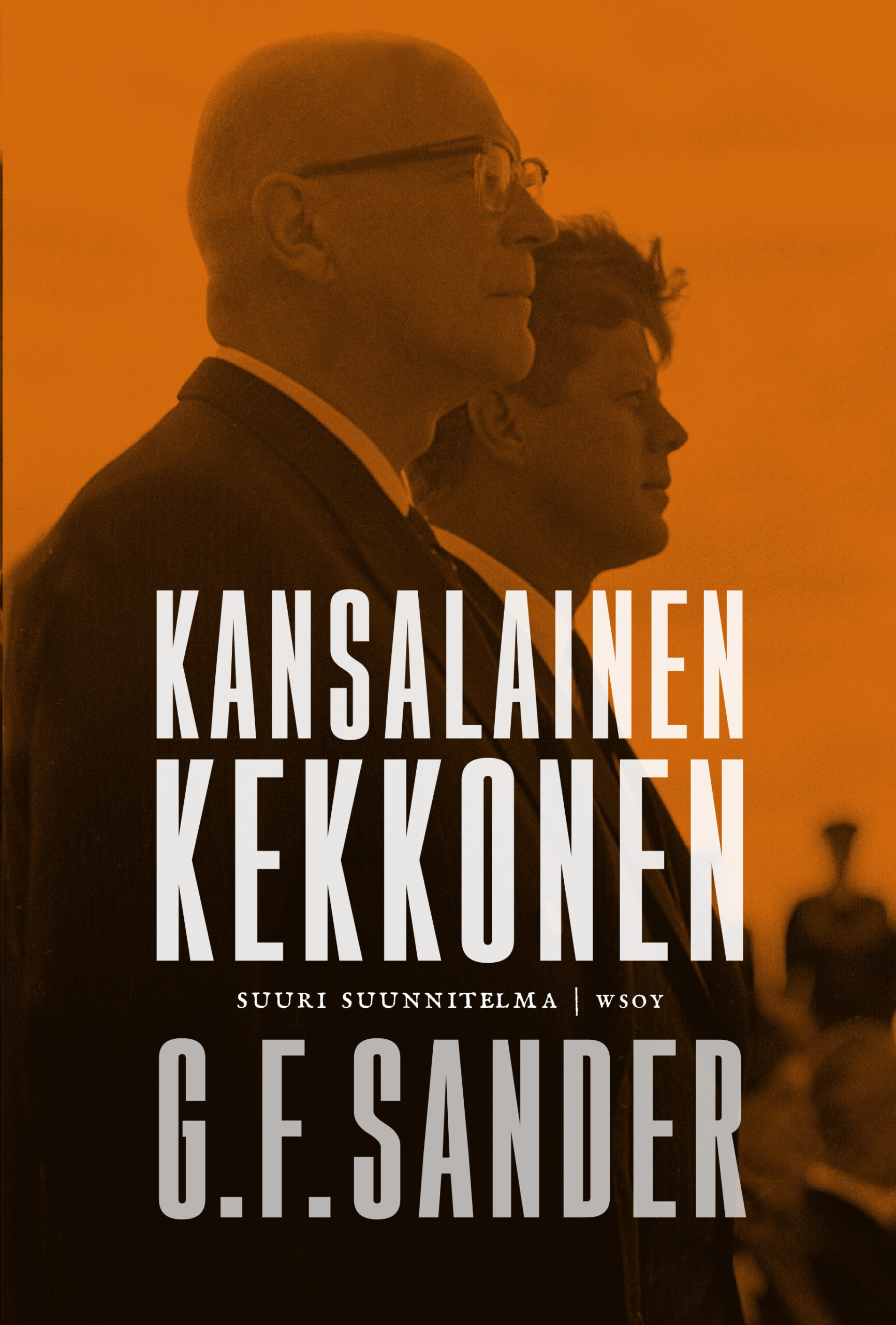In the fall of 1961, Soviet and American tanks faced off at Checkpoint Charlie in Berlin in an explosive confrontation known as the Berlin Crisis, which many feared might lead to World War III. At the same time, 1500 kilometers to the northeast, in Finland, the USSR and the US were squaring off for another potentially explosive confrontation over the Kremlin’s desire to maintain its sphere of influence over that country. This has become known as the Note Crisis.
The Note Crisis, the events leading up to it, and the three figures who were at the center of it—Urho Kekkonen, the Machiavellian president of Finland, fighting for his political life; Nikita Khrushchev, the feisty Soviet premier and Kekkonen’s sponsor; and John F. Kennedy, the US president, who sent a top secret message of support to Kekkonen—comprise the climax of Gordon Sander’s groundbreaking book.
Sander’s biography, focusing on Kekkonen’s pivotal first term and culminating with the Note Crisis and Kekkonen’s re-election, is based on three years of research and includes exclusive interviews with Khrushchev’s late son Sergey, Kekkonen’s former chiefs of staff, and the incumbent President of Finland, Sauli Niinistö.
THE FINNISH FACTOR is intended for general audiences and scholarly ones. It would be of interest to anyone who:
–is interested in reading and learning about one of the great “forgotten” crises of the Cold War
–is interested in Russian/Soviet history and/or Nikita Khrushchev
–is interested in the Kennedy administration
PRAISE:
“Over the last quarter-century, the world has learned much about what happened behind the scenes during the Cold War. One big story, though, remains largely untold, and this book finally tells it. Finland and its brilliant leader, Urho Kekkonen, managed not only to balance enemy power blocs but also to contribute decisively to peace in Europe. By telling this story, THE FINNISH FACTOR: KEKKONEN, KENNEDY, KHRUSHCHEV AND THE COLD WAR adds a vital piece to our understanding of modern world history. It also provides a gripping account of the the greatest crisis in Finnish post-war history, the 1961 Note Crisis.” – Stephen Kinzer, former Berlin bureau chief, New York Times; senior fellow, Watson Institute for International Affairs, Brown University (US)
“THE FINNISH FACTOR is remarkable and significant for several reasons. For one, it is the first, not to mention the most thorough examination of Finland’s recent history by an American – particularly its crucial and little understood role in the Cold War, when its status as a Soviet sphere of influence was a test of wills between the East and West… [—] Perhaps the high point of Sander’s spellbinding book is his account of the meeting between Finnish president Urho Kekkonen and US President John Kennedy, on the eve of the so-called 1961 Note Crisis, one of the great “forgotten” episodes of the Cold War, which includes a full never-before-published transcript of the pivotal two day conference. [—] THE FINNISH FACTOR, which reads like a page-turner, is a great read and an important and worthwhile – as well as fun – work of non-fiction and creative biography unto itself.” – Michael Franck, documentarian and film maker
“So much has happened since the end of the Cold War that even a serious student of today’s crises would surely learn much by casting an eye back at Finland’s ‘active neutrality’ role in the dangerous Berlin crisis in the early 1960’s. Gordon Sander’s THE FINNISH FACTOR is gripping history, rich with insight, fascinating characters such as Kennedy, Khrushchev and Kekkonen, and valuable lessons in crisis understanding and management. Rarely does a small country play so large a role.” – Marvin Kalb, former Moscow bureau chief, CBS News; Murrow Professor Emeritus, Harvard University
“THE FINNISH FACTOR adds a vital piece to our understanding of modern world history. It also provides a gripping account of the greatest crisis in Finnish post-war history, the 1961 Note Crisis.” – Stephen Kinzer, former Berlin bureau chief, New York Times; senior fellow, Watson Institute for International Affairs, Brown University (US)

 Loukko by
Loukko by 